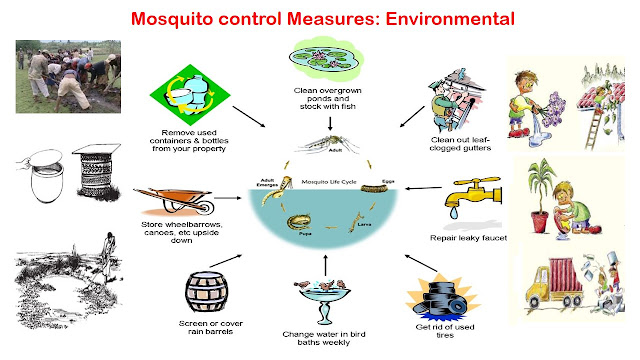Type 1 Diabetes : Take Insulin everyday to stay alive
What is it?
It is a type of diabetes also known as Juvenile diabetes or Insulin-dependent diabetes mellitus. Mostly occurs in people under 30 years of age especially in children, teens/young adults. In this diabetes the pancreas is not able to produce enough insulin required for metabolism of glucose. There is destruction of pancreatic cells by the body's immune system due to unknown causes.
What are the symptoms?
Main symptoms are:
- Polyuria: excessive & frequent urination
- Polydipsia: excessive thirst
- Polyphasia: excessive hunger
- Weight loss
- Lack of energy & tiredness
- Itching of skin & susceptibility to skin infections
What is the Management?
The aim is to allow a child or adult to live a normal life and participate in all activities in day today life
- Insulin is injected daily as per instructions of doctor
- Blood sugar level is monitored by testing blood in a glucose meter (glucometer) 4 times a day at first
- Ketones is tested by a urine test strip
- A good diet as advised by the doctor & dietitian which should be low in fat, high in complex carbohydrates, beans, wholemeal bread & cereals. Sugar, refined carbohydrates & alcohol should be avoided.
- A regular exercise program
- Hypoglycemia is managed by a quick boost of glucose such as sugar/chocolate/jelly beans/honey in the mouth
- Regular health checkups
How it can be prevented?
Type 1 Diabetes cannot be prevented by any method till now.
What are the complications?
If not managed properly can lead to
- Damage to kidneys, nerves (especially of feet), vessels, eyes, skin & various infections
- Damage to blood vessels may increase the risk of heart diseases & strokes
- Hypoglycemia & Ketoacidosis which may lead to coma
When Hypoglycemia & Ketoacidosis occurs?
(a) Hypoglycemia: occurs when a person with type 1 diabetes
- Injects too much insulin
- Skips a meal
- Exercises heavily
The symptoms of hypoglycemia are
- Hunger
- Nausea
- Dizziness
- Difficulty in concentration
- Shakiness,
- Weakness/fatigue
- Sweating,
- Chills/clamminess
- Palpitations
- Tremors
- Mood changes/ irritability,
- Anger or sadness
(b) Ketoacidosis: occurs in type 1 diabetes
- Which is difficult to control
- When insulin is not taken usually during an illness
The symptoms of ketoacidosis are
- Drowsiness
- Vomiting
- Abdominal pain &
- Rapid breathing
In ketoacidosis ketones appear in the blood and urine of the person. Therefore insulin should never be stopped in a person with type 1 diabetes mellitus.
Can a diabetic child play sports?
Yes (with prior adjustment of insulin doses) as exercise is good for development. Additional carbohydrates may be needed during the exercise.
What to do when child is sick?
- Insulin should be continued even if the child is not eating much or accompanied by anorexia, nausea or vomiting
- A prearranged action plan should be there for sick days
- Call your doctor/hospital for advice
- Maintain the normal meal plan if possible
- Increase the fluid intake
- Increase the frequency of blood glucose measurement to 3-4 times/day
- Check the urine or blood for ketones
- Extra insulin given should be rapid or fast acting
Can a diabetic child attend school?
Yes, the child should attend school & participate in school activities. The school head and staffs should be notified about the diagnosis and management issues especially if hypoglycemia develops
What are the points to remember?
- Too much food, stress or illness will increase the blood glucose
- Medications & exercise will decrease the blood glucose
- Insulin should be given everyday even in illness
- Make an action plan for sick days
- Never ignore a minor illness also as it can result in a major rise in blood glucose
- Never change the insulin dose unless instructed by the doctor
- Hospital care is needed in ketoacidosis
Can diabetic people get coronavirus more easily ?
No, Diabetics are at same risk of getting COVID-19 as others but are more vulnerable to develop serious illness. It may vary from person to person. There is more risk of developing complications like hypoglycemia & ketoacidosis as body is working extra to fight the illness. Sick day rules should be followed if a diabetic gets infected by coronavirus. Social distancing, hand washing and wearing mask should be followed to prevent COVID-19 infection. Go to hospital if any symptoms of COVID-19 infection develops.
References:
- https://www.cdc.gov/diabetes/basics/type1.html
- https://www.nhs.uk/conditions/diabetes/
- https://www.diabetes.org.uk/about_us/news/coronavirus#affects
- https://www.niddk.nih.gov/health-information/diabetes
- https://www.niddk.nih.gov/health-information/diabetes/overview/what-is-diabetes
- https://www.who.int/health-topics/diabetes#tab=tab_3
- https://www.idf.org/aboutdiabetes/what-is-diabetes/covid-19-and-diabetes/1-covid-19-and-diabetes.html







Comments
Post a Comment